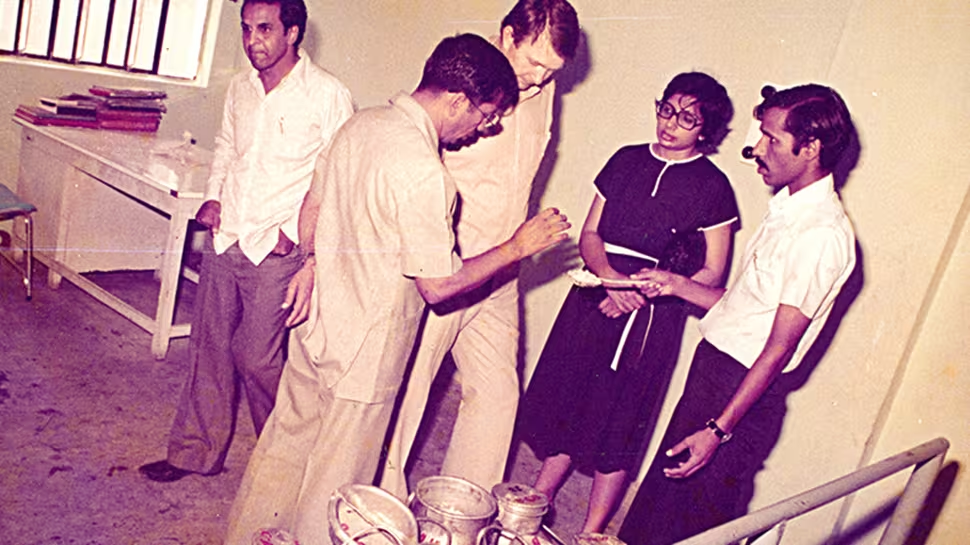Unforgotten Brands: Biocon

Biocon, has gone on to make significant contributions to the biotech industry both in India and globally
Kiran Mazumdar was born and raised in Bangalore, India. She began her formal education at Bishop Cotton Girls’ High School, graduating in 1968. After high school, she enrolled at Mount Carmel College in Bangalore to pursue her pre-university courses. During this period, Kiran aspired to become a doctor, a dream she had nurtured since childhood. However, the medical field presented limited opportunities, leading her to reconsider her career path.
Instead of pursuing medicine, Kiran chose to study zoology and earned a Bachelor of Science degree in the subject from Bangalore University. New opportunities prompted her to continue her education abroad. She travelled to Australia and enrolled at Ballarat University in Melbourne to pursue a Master Brewer qualification.
The Brewing Industry and Initial Challenges
In 1974, Kiran Mazumdar embarked on her professional journey in the brewing industry. She secured her first job as a trainee brewer with Carlton and United Breweries in Australia. Over the next four years, she honed her skills and gained valuable experience in brewing. However, her return to India in the late 1970s presented an unexpected challenge.
Despite her qualifications and experience, Kiran found it difficult to secure a job in the Indian brewing industry. The concept of a female brewmaster was almost unheard of in India, and potential employers were reluctant to hire a woman for the role. This setback forced her to reconsider her options, leading to a significant turning point in her life.

A Serendipitous Meeting with Les Auchincloss
While Kiran was contemplating her next move, fate intervened in the form of Les Auchincloss, the CEO of Biocon Biochemicals, Ireland. Auchincloss reached out to Kiran via telegram, expressing his interest in meeting her during his visit to Baroda, India. At the time, Kiran was assisting her father in winding up his malting business in Baroda, which had not been successful.
The meeting took place at the Express Hotel in Baroda, the only upscale hotel in the city at that time. Auchincloss explained his business, which focused on enzymes and process improvement formulations for the brewing industry. He revealed that Biocon Biochemicals had been sourcing raw materials from India and was now looking to establish a local company. To Kiran’s surprise, Auchincloss asked her to be his partner in this venture.
The Decision to Start
Initially, Kiran thought Auchincloss was joking. She was still in the process of figuring out her career and had not considered entrepreneurship as an option. Moreover, she was helping her father recover from the financial losses incurred by his business. However, Auchincloss was persistent. He even travelled to Delhi to meet Kiran again and discuss the possibility of her leading Biocon India.
To divert Auchincloss’s attention, Kiran introduced him to Puran Chand, the founder of Barmalt, a successful malting company in India. Despite suffering from a bout of diarrhoea, Auchincloss attended a meeting with Puran Chand, but his interest remained fixed on Kiran. He made it clear that he wanted Kiran to lead the new venture, not Puran Chand.
Auchincloss assured Kiran that she would not need significant financial investment or business expertise to start the company. He offered to mentor her and even promised to secure her a job in the UK brewing industry if she did not enjoy her work after a year. Kiran was still hesitant, but her father, Rasendra Mazumdar, encouraged her to make her own decision.

Biocon India
After much deliberation, Kiran Mazumdar decided to take the plunge. She informed Puran Chand that she would no longer intern at Barmalt and would instead accompany Auchincloss to the Horlicks plant in Nabha near Chandigarh. There, she began conducting trials with Biocon’s enzymes. Auchincloss provided her with enzymes and $3,000 in cash to get started on setting up Biocon India.
Kiran decided to establish the company in Bangalore, a city she was familiar with and where her father’s connections in the brewing industry would be beneficial. She rented a small garage space and, with an initial investment of Rs. 10,000, began her entrepreneurial journey.
Overcoming Initial Challenges
Starting a biotechnology company in India during the late 1970s was no small feat, especially for a young woman. Kiran faced numerous challenges, including securing loans from banks. Biotechnology was a new field, and women entrepreneurs were rare. Many banks were unwilling to take a risk on her idea, and some even asked her father to be a guarantor. Despite these obstacles, Kiran persisted.
To highlight the challenges women faced during that time, Kiran Mazumdar-Shaw recounts an experience with the Karnataka State Financial Corporation (KSFC) when she sought a loan. The institution informed her that women entrepreneurs were categorized alongside the physically challenged and backward classes, and she could apply for a loan under this classification. However, Mazumdar-Shaw firmly refused. She made it clear that she neither belonged to a backward class nor was physically challenged, insisting that her application be processed under the general category.
Securing a credit line from a bank proved to be an almost insurmountable task. Banks typically demanded collateral or insisted that her father sign a bank guarantee since she was unmarried. Lacking collateral, she made it clear that her father was not involved in her business and that their decision should be based on her own merits. Despite her determination, most banks were unwilling to take that risk. Finally, a manager at Canara Bank decided to take a chance on her, and she was able to secure the much-needed credit line.
Recruiting talent was another significant challenge. Many potential employees, both men and women, were hesitant to work for a woman-led startup. Some assumed Kiran was a secretary when they walked into the garage space. After interviewing 40 candidates, she finally hired her first employee, a retired garage mechanic.
The lack of infrastructure posed additional difficulties. Uninterrupted power, quality water, sterile labs, imported research equipment, and workers with advanced scientific skills were hard to come by. Despite these hurdles, Kiran refused to give up and continued to work tirelessly to build her company.
The Turning Point
Biocon India began as an industrial enzyme manufacturer, focusing on exporting its products to the USA and Europe. Remarkably, the company started turning a profit within its first year of operation. With the profits, Kiran was able to purchase a 20-acre property for further expansion.
Kiran’s focus on innovation and research led to the discovery of novel enzymes and the development of solid substrate fermentation technology. These advancements took Biocon’s operations to new heights, setting the stage for its future success.
Achieving Milestones
In 1987, Kiran Mazumdar-Shaw received support from Narayan Vaghul of ICICI Ventures, who helped create a venture capital fund of USD 250,000 for Biocon. Two years later, in 1989, Biocon became the first Indian biotech company to receive US funding for proprietary technology. This achievement marked a significant milestone in Biocon’s journey, solidifying its position as a pioneering force in the biotechnology industry.
Legacy and Impact
Kiran Mazumdar-Shaw’s journey from a young woman struggling to find her place in the brewing industry to a trailblazing entrepreneur in biotechnology is nothing short of inspirational. Her relentless determination, coupled with her willingness to take risks, led to the creation of Biocon, a company that would go on to make significant contributions to the global biotech industry.
Reference
https://www.chaturideas.com/ic/The_Success_Story_of_Kiran_Mazumdar_Shaw
https://www.bbc.com/news/business-45547352




1 Comment